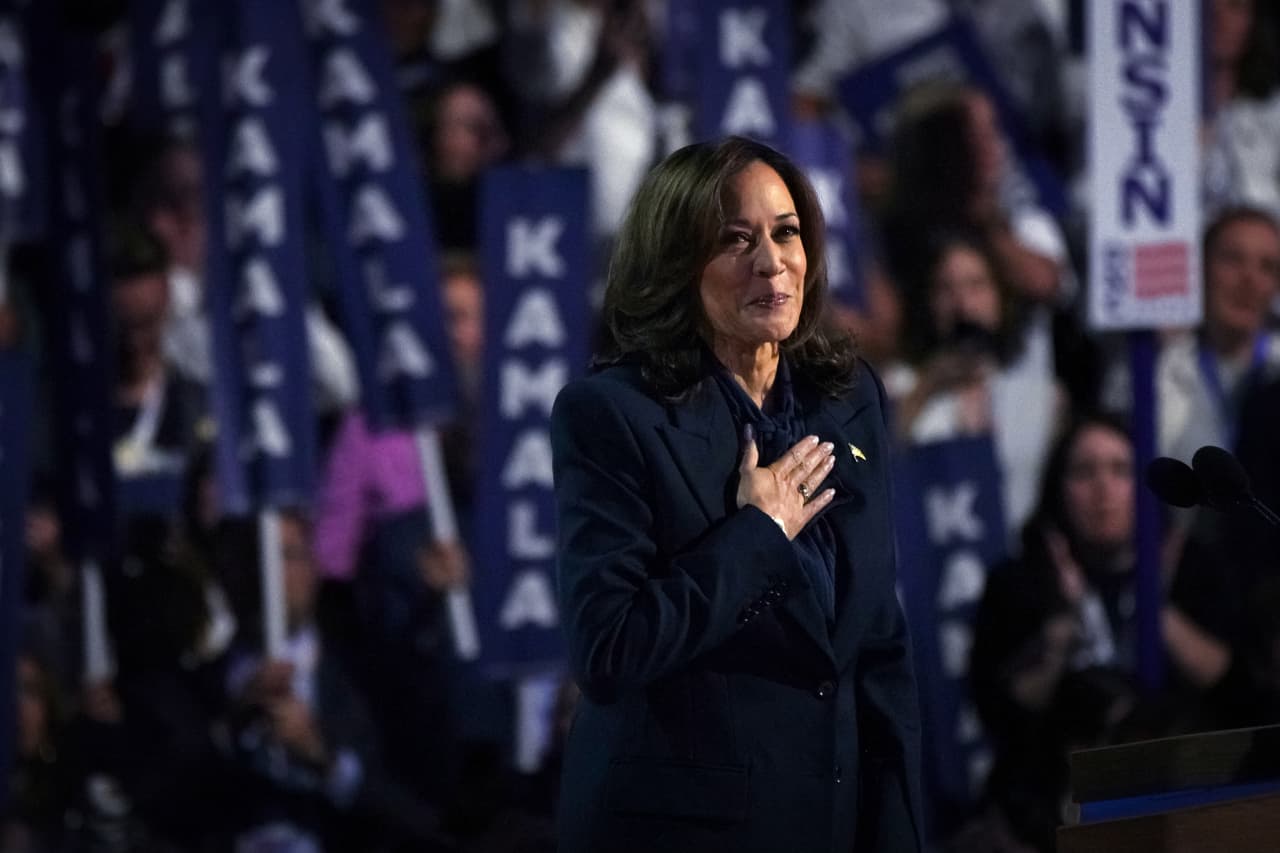WASHINGTON— Kamala Harris ’s defeat generated swift condemnation and soul-searching among Democrats, who are handing the White House back to a Republican they see as deeply flawed after their party failed to connect with voters preoccupied by inflation and illegal immigration.
The loss stunned Democrats, who felt confident going into Election Day that they had energy and momentum on their side. Instead, voters across several swing states delivered a clear rebuke by shifting in favor of President-elect Donald Trump.
The immediate reaction from party leaders was despondency. Asked who was to blame for the loss, one senior Democrat simply said “everyone.” The party lost ground with chunks of voters who used to be core to their coalition, including working-class voters and minorities, and lost rural areas in big numbers and failed to make up that deficit.
Privately, Democrats were quick to point their finger at President Biden for running for re-election as an octogenarian and then, after a disastrous debate in June, only stepping aside after a tortured process. They now will spend four years pondering the vice president’s inability to defeat Trump despite his significant vulnerabilities including 35 felony convictions.
Trump’s victory sets off a period of anxiety and second-guessing within the Democratic Party, reminiscent of the stretch after his narrow win over Hillary Clinton in 2016. Clinton’s earlier defeat emboldened progressives within the party to join “the resistance” and was embodied by women who launched the women’s march to protest Trump’s inauguration.
It also supercharges deep questions that have been swirling on whether the party has become too elite and has lost its ability to appeal to the working-class voters who traditionally have backed Democratic candidates. “Something is definitely wrong with the Democratic brand,” said Matt Bennett, a founder of the center-left think tank Third Way. “Everyone believes there is a problem. But we diagnose the problem quite differently.”
The party’s center-left contingent wants to see Democrats take on issues like the economy, crime and the immigration in a more direct way while avoiding some of the cultural issues, like rights for transgender people, that they feel turned off middle-of-the-road voters.
But the progressive wing of the party sees it differently, arguing that Democrats need to move further to the left to excite a new batch of voters or take other steps to try to lure back the types of voters who have moved to Trump in recent years.
“We pursued a strategy in which we told working-class, noncollege whites this is not the party for you,” said Faiz Shakir , a top adviser to Sen. Bernie Sanders (I., Vt.). Liberals believe the party could turn out swaths of new voters if it embraces a more populist approach that delivers tangible benefits.
Trump has served as a unifying figure for Democrats, tamping down this intraparty debate. He’s also been a boon to both parties in organizing and in fundraising, but the Democratic Party must now reckon with how it lost to him in two of the three past presidential elections despite high disapproval ratings and anger over the overturning of the Roe v. Wade decision by a Supreme Court that Trump helped construct.
And it is unclear that Trump will continue to motivate Democrats, some of whom are fatigued by nearly a decade of outrage.
Still, in the immediate near term, Democratic leaders will again band together to try to block policies from the Trump White House. Trump will have a slender majority in the Senate, giving him a freer hand in confirming appointments.
Now in the wilderness, the Democratic Party will need to choose a new chair of the Democratic National Committee while an array of governors and senators will look to make the case for how Democrats should respond to Trump’s return to power.
Harris’s defeat immediately elevates a large field of potential presidential candidates in 2028, including governors such as Gavin Newsom of California, Gretchen Whitmer of Michigan, Josh Shapiro of Pennsylvania and Wes Moore of Maryland. It wasn’t immediately clear if Harris would run again.

California Gov. Gavin Newsom is often mentioned as a potential presidential contender for the Democrats.

Michigan Gov. Gretchen Whitmer has also been floated as a future presidential hopeful.
Progressive leaders such as Reps. Alexandria Ocasio-Cortez (D., N.Y.), Jamie Raskin (D., Md.) and Ro Khanna , (D., Calif.), a longtime ally of Sanders, could also emerge as contenders from the left.
But the second defeat of a female standard-bearer to Trump—a candidate whom Democrats viewed as uniquely flawed—could also scare the party from elevating another woman to the top of the ticket in the immediate future. “If the Democrats lose, they will believe it’s because we had a nonwhite woman and people just couldn’t vote for her,” said James Carville, who was the top political strategist to President Bill Clinton , speaking a few days before Election Day. “We are more unified. We have more money. He’s had a disastrous close.”
Biden’s decision to initially seek a second term at the age of 80 and the party establishment’s aggressive efforts to discourage primary challenges last year will linger within the party in the aftermath of Trump’s victory. The president’s damaging debate performance against Trump in June led to waves of criticism about his mental fitness to lead and pressure within the party, ultimately leading to Biden’s decision to withdraw from the campaign on July 21.
Biden quickly endorsed Harris, who swiftly lined up support in the party and locked down the nomination within days, averting a primary process. Democrats said Biden’s decision-making deprived the party of an open competition that may have resulted in a stronger candidate.
And the timing meant that Harris had just over 100 days to pull together a campaign. She quickly unified the party and raised more than $1 billion within months.
There have already been questions about whether Harris made the right choice in Minnesota Gov. Tim Walz as a running mate, or whether another pick would have helped her more. But some Democrats say the vice presidential choice likely mattered little in the scheme of things, given Harris’s broad loss across swing states.
Write to Ken Thomas at ken.thomas@wsj.com and Annie Linskey at annie.linskey@wsj.com



